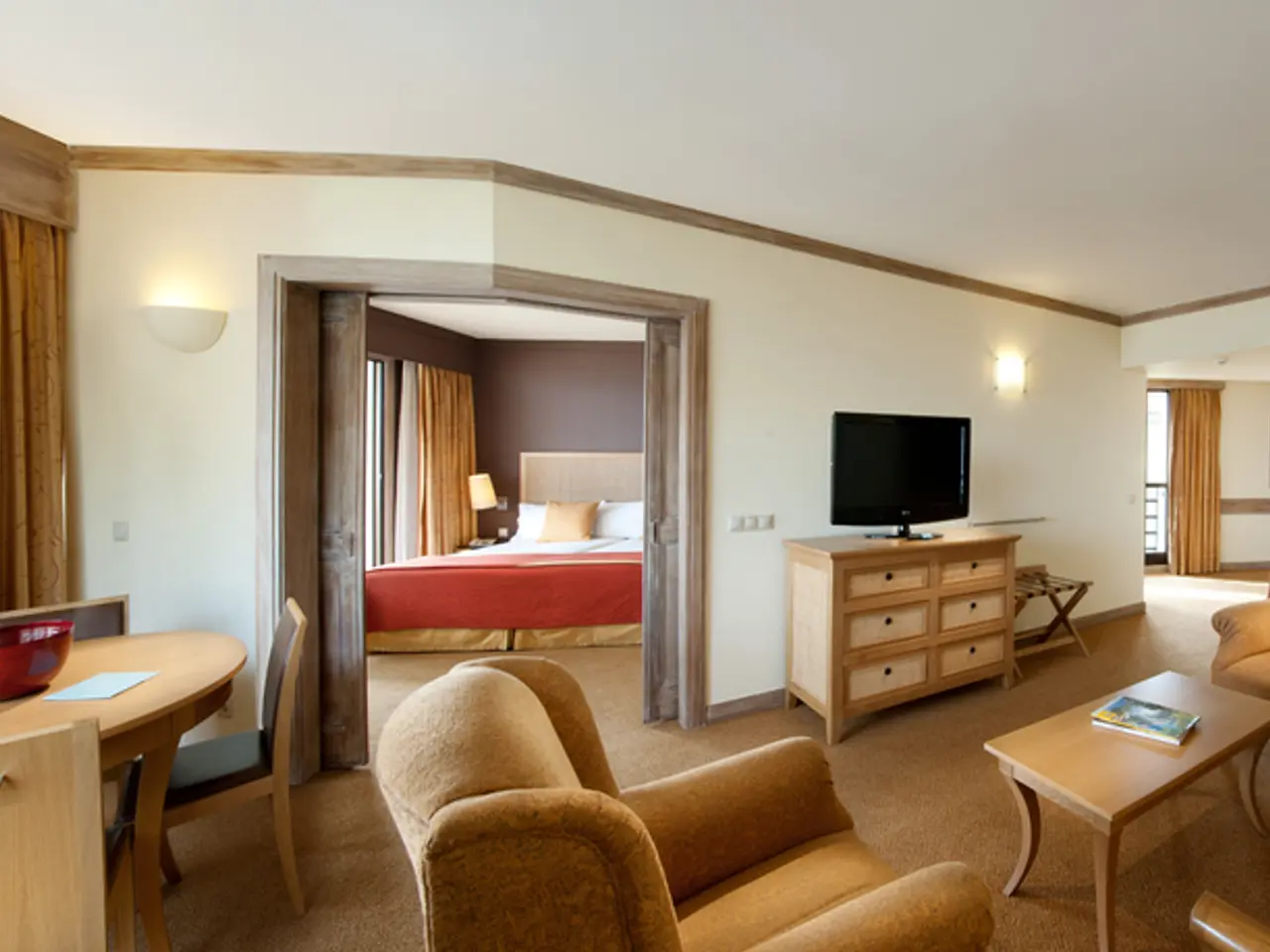High-end homes abandoned due to tax penalty on expensive real estate estates
In a bid to address the scarcity of affordable housing in cities like Munich, Hamburg, and Düsseldorf, the Left party in Germany has proposed a luxury villa tax modeled after Los Angeles' mansion tax.
This tax would target high-value properties, potentially generating hundreds of millions of euros annually. In Los Angeles, the mansion tax applies a 4% transfer tax on residential property sales over $5 million, rising to 5.5% for properties north of $10 million. Last year, this tax generated approximately 364 million euros.
The luxury villa tax in Germany would affect a limited number of high-value properties, with estimates suggesting that it could impact a few hundred to a couple of thousand transactions annually. The exact number of properties and the revenue generated would depend on market activity and tax rate, but potential revenue could reach low hundreds of millions of euros per year.
For example, if 500 villas sold annually at an average value of €6 million, a 4% tax would generate €120 million. However, precise data on Germany’s luxury property market is not readily available, making exact estimates difficult.
The Left party's proposal for the luxury villa tax aims to address the issue of affordable housing scarcity in Germany. Party leader Jan van Aken stated that many people struggle to find a place to live, whether divorced couples, families, or adult children moving out of their parents' homes.
The revenue generated from the luxury villa tax could potentially be used to finance affordable housing. An alternative to the surcharge is considering a higher rate for the property tax on particularly expensive properties.
The demand for a luxury villa tax combines both issues proposed by the Left party. Van Aken also mentioned that there are people living in large properties, owning luxury villas, barely using the largest part of their homes in their daily lives.
The concept of the luxury villa tax suggests that there are numerous luxury properties in Germany that exceed normal living requirements. The Left party is considering various options for implementing the luxury villa tax, including a five percent surcharge on the real estate transfer tax for property purchases over four million euros and a higher rate for the property tax on particularly expensive properties.
As in Los Angeles, such a tax could dampen turnover and new construction in the luxury segment by raising transaction costs. Germany would need clear valuation rules and thresholds for applying the tax to avoid disputes. Additionally, Germany already has real estate transfer taxes, but no extra surcharge specifically targeted at luxury villas.
In summary, a luxury villa tax similar to LA’s mansion tax in Germany could potentially generate significant revenue, estimated at potentially over €100 million annually depending on market activity and tax rate. Concrete numbers would require detailed property transaction data in Germany’s luxury real estate sector.
- The revenue generated from the luxury villa tax in Germany could be used to finance affordable housing, which is one of the key issues proposed by the Left party.
- The concept of the luxury villa tax suggests that there are numerous luxury properties in Germany that exceed normal living requirements, echoing the targeting of high-value properties as seen in Los Angeles' mansion tax.




